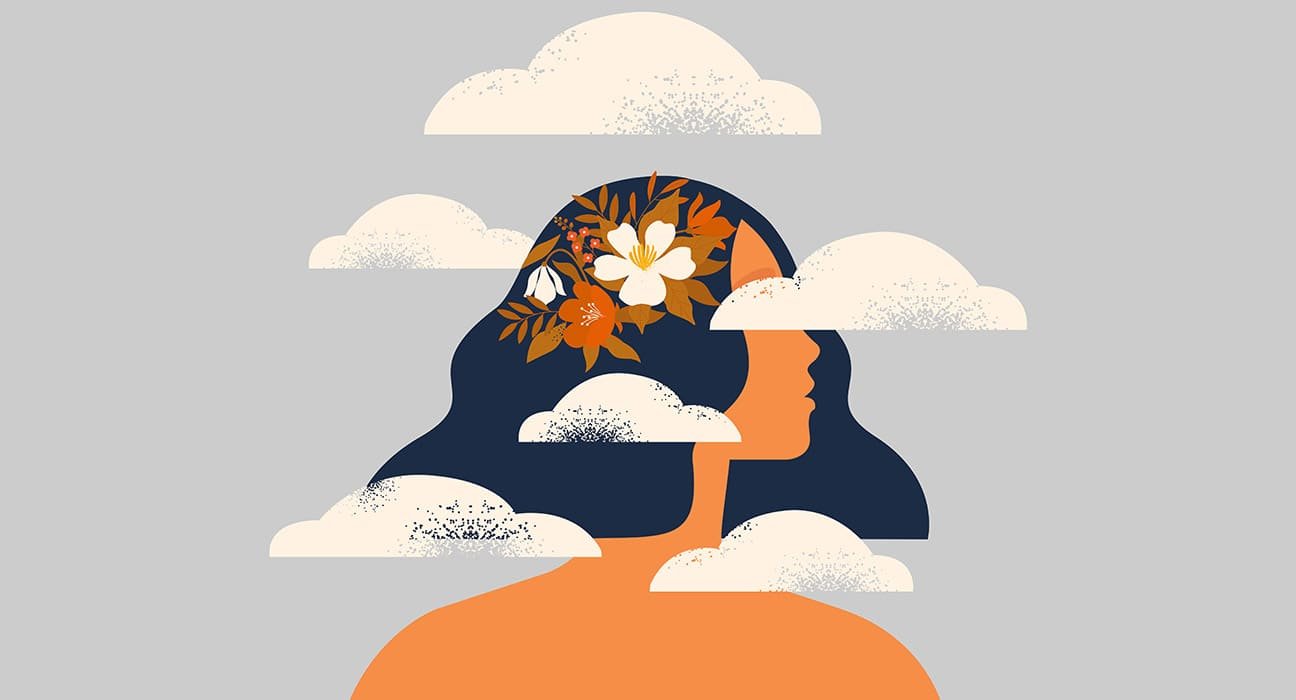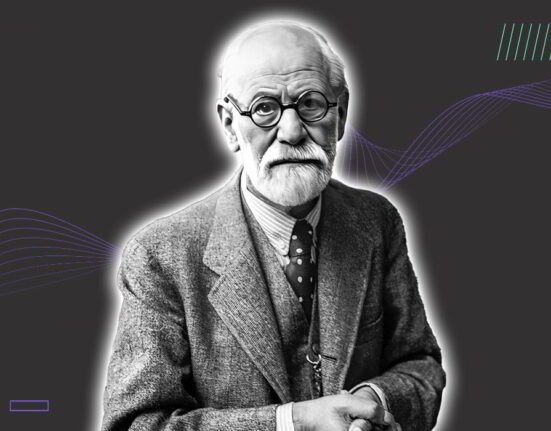A mental disorder is a general word describing a wide variety of psychological disorders that impact behaviour, cognitive abilities, and day-to-day functioning. They affect your emotions, thoughts, and behaviour. Bipolar disorder, schizophrenia, anxiety disorders, and depression are a few common mental ailments. Numerous factors, including life circumstances, neurological disorders, brain injury, genetic predisposition exposure to environmental chemicals, and so on, can cause them.
Numerous health issues can accompany psychological illnesses. The most prevalent ones are immune system deficiencies and cardiac conditions. Other complications linked with any mental illness include social isolation, loss of employment, and a propensity to engage in self-destructive behaviours.
In 2017, 792 million individuals worldwide were estimated to be living with a mental illness, according to Our World in Data, an online research publication organization. This represents roughly 10% of the world’s population. According to their ranking, eating disorders, bipolar disorder, schizophrenia, anxiety disorders, and depression are the top 5 psychological conditions.
Causes of Mental Illness
Mental illness doesn’t stem from a singular cause; instead, it’s understood to result from a combination of various factors, sometimes working together simultaneously. Some factors that may impact an individual’s likelihood of developing a mental disease include the following:
- Biology: A significant factor in mental diseases is brain chemistry. Neurotransmitters are the chemical messengers in the brain, and changes or imbalances in these messengers are frequently linked to mental illnesses.
- Environmental exposures: Offspring who are exposed to specific drugs during pregnancy may have a greater likelihood of mental health disorders. You might be more vulnerable, for instance, if your mother did drugs, drank alcohol, or was exposed to toxins or dangerous substances while she was carrying you.
- Genetics: For a considerable amount of time, professionals have acknowledged that a significant number of mental diseases have a family component. For example, people may be more likely to develop mental illness if they have a family who has autism, bipolar disorder, significant depression, or schizophrenia.
- Life experiences: Your unpleasant past experiences may have aided in the emergence of mental disease. For instance, recurring changes in a child’s primary caregivers may have an impact on the development of an attachment disorder, whereas experiencing traumatic events may result in a disorder similar to PTSD.
Read More: How trauma affects emotional development in children?
Symptoms of Mental Illness
The evidence and symptoms of psychiatric disorders differ based on the nature of the disorder, life circumstances, underlying medical issues, heredity, and personality type. Certain symptoms, though, are common to all mental illnesses. They are as follows:
- Sadness
- Confused thought
- Lack of Concentration;
- Strange Phobias;
- Intense guilt;
- Unpredictable moods;
- Social disengagement;
- Delusion;
- Incapacity to handle stress;
- Disturbed sleep patterns;
- Dietary changes;
- Drug or alcohol addiction
- Altered sexual behaviour
Diagnosis of Mental Illness
It is difficult to detect any psychiatric illness. However, to identify the cause of your mental health issue, your doctor may employ the following techniques.
- Physical examination: Your doctor will use this procedure to rule out any physical issues that might be the cause of your symptoms.
- Lab tests: He can recommend an alcohol and drug addiction test or a thyroid examination.
- Psychological evaluation: Your doctor will discuss your symptoms, thoughts, feelings, and behaviours in great depth during this process. For clarification, he might advise completing a questionnaire as well.
Are there Different types of Mental Health Disorders?
Over 200 different kinds of mental health conditions exist. Anxiety disorders are among the most prevalent categories of mental health diseases.
- Hyperactivity/attention deficit disorder (ADHD).
- Autism spectrum condition
- Mood problems such as depression and bipolar disorder.
- Disorders characterized by disruptive behaviour, including conduct disorder and oppositional defiant disorder.
- Problems related to eating.
- OCD, or obsessive-compulsive disorder.
- Personality disorders: antisocial and borderline personality disorders are two examples.
- PTSD, or post-traumatic stress disorder.
- Psychotic disorders such as schizophrenia.
- Substance use disorders, such as alcoholism and drug addiction.
How are Mental Health disorders treated?
Among the possible therapies for mental health issues are:
- Medication: Antidepressants and antipsychotics are two examples of medications that work effectively for treating mental diseases. These medications alter the chemistry of your brain to reduce symptoms. You must take your prescription exactly as prescribed by your doctor. For mental health conditions, never stop taking your prescription without first talking to your doctor.
- Psychotherapy: Speaking with a mental health expert can assist you in managing the symptoms of an illness and overcoming its obstacles. Psychotherapy can take place in a group environment or one-on-one with a medical professional. One type of psychotherapy is called cognitive behavioural therapy (CBT). Its main goal is to assist you in altering unfavourable thought and behaviour habits.
- Alternative therapies: With alternative therapies, certain mental diseases, like depression, may become better. Herbal treatments, massage, acupuncture, yoga, and meditation are a few examples. Consult your physician before using any supplements or natural therapies. They might have an impact on other drugs.
- Brain stimulation therapies: Medication is not always effective in treating illnesses. Your doctor might suggest brain stimulation treatments if that’s the case. Your brain’s nerves and other cells process chemicals and react to stimuli differently as a result of these therapies. Examples include transcranial magnetic stimulation (TMS) and electroconvulsive treatment.
Research
Receiving diagnoses for numerous mental health conditions, or comorbidities, appears to be more prevalent than not these days. Studies reveal that over half of those diagnosed with a psychiatric disease will go on to obtain a second or third diagnosis during their lifetime, and over one-third will receive four or more.
Numerous factors are known to influence mental health diagnoses, but what role does genetics play? A new study that examined the genetics of some of the most widespread psychiatric disorders discovered that many disorders are genetically similar.
The genetic composition of eleven major psychiatric conditions—including bipolar disorder, major depressive disorder, anxiety disorder, schizophrenia, anorexia nervosa, obsessive-compulsive disorder, ADHD, Tourette’s syndrome, problematic alcohol use, and autism—was examined by researchers from the University of Texas at Austin, Vrije Universiteit Amsterdam, and other cooperating institutions. They were able to accomplish this by utilising information from hundreds of thousands of people who contributed their genetic material to extensive databases.
The findings showed that major depressive disorder and anxiety disorder share a genetic design and that anorexia nervosa and obsessive-compulsive disorder share a genetic architecture. Although 152 genetic variations common to several illnesses were found, the precise function of the genes is yet unknown.
Researchers believe this could be a first step in altering the process of diagnosing patients and ultimately result in treatments that treat several mental illnesses simultaneously as opposed to piecemeal.
A reference work on mental health and illnesses and disorders relating to the brain is the Diagnostic and Statistical Manual of Mental Disorders, or “DSM.” For this book, the American Psychiatric Association (APA) is in charge of writing, editing, reviewing, and publishing. Medical professionals and experts are the target audience for the DSM-5 and DSM-5-TR reference volumes. Despite the highly technical content of these publications, non-medical professionals may nonetheless find them to be fascinating or educational.
Correct diagnosis is the first step in treating any kind of health issue, whether it be mental or physical. The DSM-5 enters the picture here. It offers precise, in-depth definitions of mental health and brain-related disorders. Additionally, it gives specifics and illustrations of the symptoms and indicators of certain illnesses. The DSM-5 groups conditions together in addition to providing definitions and explanations. This facilitates the process of effectively diagnosing diseases and distinguishing them from conditions that have similar signs and symptoms by healthcare providers.
References +
- Styx, L. (2022, June 16). Why does it seem like everyone has more than one mental illness? Verywell Mind. https://www.verywellmind.com/why-does-it-seem-like-everyone-has-more-than-one-mental-illness-5323675
- Lcsw, A. M. (2023, August 22). Mental Health Diagnosis: Symptoms, types, and Treatments. Verywell Mind. https://www.verywellmind.com/definition-of-mental-illness-4587855
- The Health Site. (n.d.). Mental health Disorder: Types, causes, symptoms, and treatment. TheHealthSite. https://www.thehealthsite.com/diseases-conditions/mental-disorders-diseases-conditions/
- Professional, C. C. M. (n.d.). Mental health disorders. Cleveland Clinic. https://my.clevelandclinic.org/health/diseases/22295-mental-health-disorders
- APA – DSM – Diagnostic and Statistical Manual of Mental Disorders. (n.d.). https://www.appi.org/DSM
- DSM-5-TR fact sheets. (n.d.). https://www.psychiatry.org/psychiatrists/practice/dsm/educational-resources/dsm-5-tr-fact-sheets













Leave feedback about this